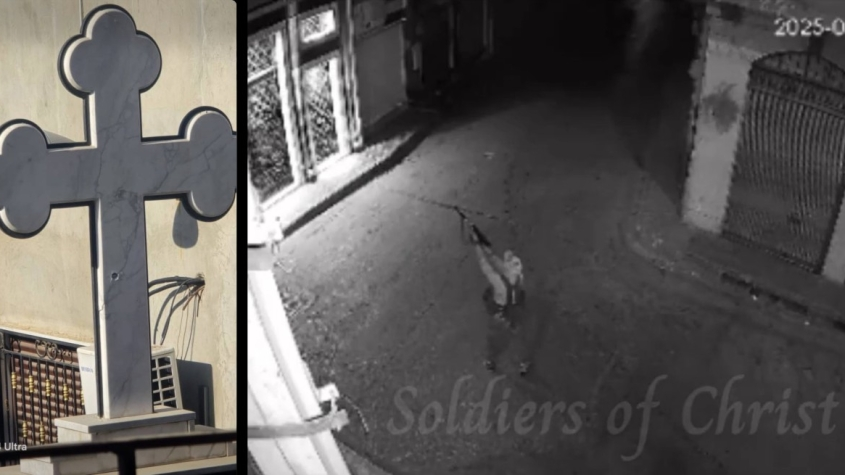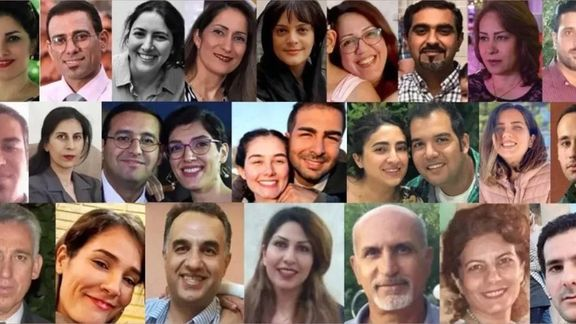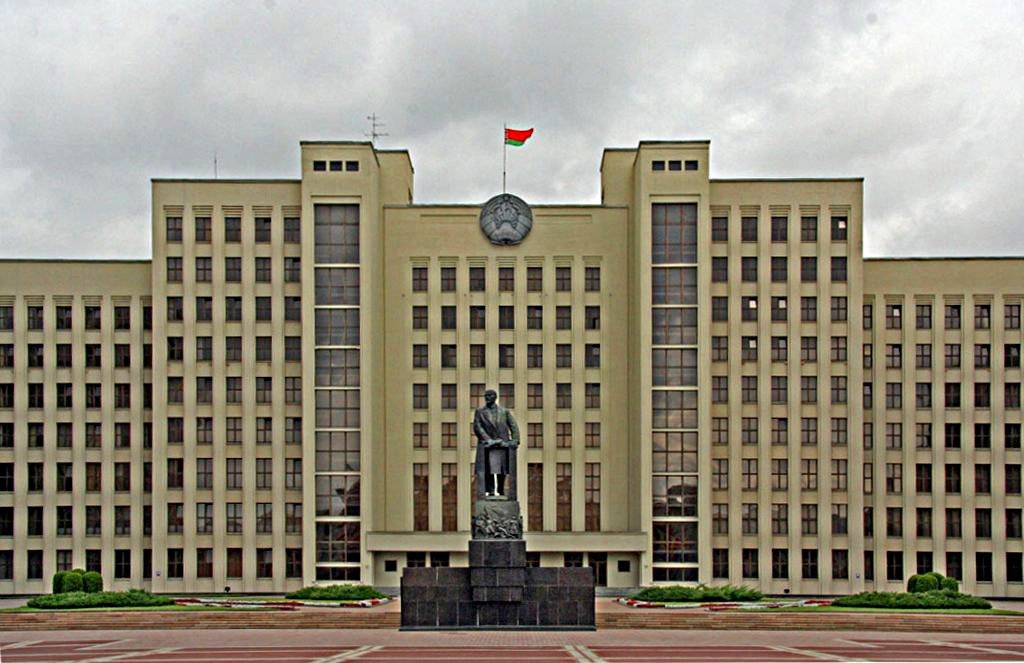When the world feels like it’s burning, it can be hard to focus on religious freedom. But that’s exactly when totalitarians tighten their grip—while people are looking elsewhere.
Here are five FoRB stories you might have missed amid the chaos.

1
Syria: Gunfire Strikes Ancient Church Cross in Homs

As churches reopen, new threats remind Syria’s Christians of past wounds.
In the early hours of June 8, unknown assailants opened fire on the Holy Cross affixed to the Cathedral of the Virgin Mary “Um al-Zennar” in Homs—a church that has stood for nearly two millennia.
No one was injured, but the symbolic damage cut deep. The Syriac Orthodox Archdiocese condemned the act as a “heinous attack” on both sacred space and civil peace.
Christian communities in Syria, already diminished by war and displacement, are again facing a quiet but deliberate threat to their presence and identity.
Church leaders have called for a full investigation—and for believers to respond not with fear, but with steadfastness and faith.
2
Iran Re-Charges 26 Baha’is With No New Evidence
In Iran, even acquittal isn’t the end—just a pause in persecution.
Iran’s Supreme Court has ordered a retrial for 26 Baha’i citizens–just months after they were acquitted of all charges, and with no new evidence.
The group, from Shiraz and nearby towns, had been arrested for “propaganda against the regime” for holding prayer gatherings, promoting Baha’i teachings, and organizing community programs. A lower court ruled there was no crime.
Now, that ruling has been reversed—and their future hangs in the balance once again.
Baha’is in Iran remain unrecognized by law and routinely face discrimination in housing, education, and employment. Even basic expressions of their faith can trigger arrest.

3
India: Christians Attacked During Wedding Celebration in Chhattisgarh

A sacred day became a scene of terror.
In Chhattisgarh’s Bastar District, a Christian wedding celebration turned violent when a mob of around 30 men stormed the home, shouting anti-Christian slurs and attacking the wedding guests with sticks and rods.
The groom, the bride’s father, and multiple relatives were injured. One woman was hospitalized. The family had spent months preparing for the ceremony—only to have it shattered in minutes.
Local Christian leaders say this was not an isolated event. Public expressions of faith in parts of India increasingly come with a risk of violence, even on the most joyful of days.
https://persecutionrelief.org/joyful-wedding-celebrations-turned-into-great-sorrow/
4
Belarus Criminalizes Worship Without State Permission
A prayer meeting in your living room could now land you in prison.
Belarus has enacted a sweeping new religion law requiring all religious groups to re-register with the government—regardless of past approval. Any group that fails to re-register by the deadline will be considered illegal.
Under the law, it is now a criminal offense to hold a worship service, prayer meeting, or Bible study without state authorization. Offenders may face up to two years in prison.
The law also grants broad new powers to government officials to deny registration based on vague criteria. Faith groups fear this will be used to silence minority religions and punish those who speak out against the regime.
https://forum18.org/archive.php?article_id=2882
[image: Belarussian parliament building in Minsk]

5
Russia Upholds 6-Year Prison Terms for Ukrainian Jehovah’s Witnesses in Occupied Crimea

Their crime? Reading Scripture, praying, and thanking others for participating.
Victor Kudinov and Serhiy Zhyhalov have lost their appeal and will now serve six years in a Russian penal colony — for nothing more than practicing their faith as Jehovah’s Witnesses.
Russian occupation courts in Crimea convicted the men of “organizing the activities of an extremist organization.” The evidence? That they led prayers, assigned readings, and thanked others during peaceful religious meetings.
At their June 11 appeal, dozens of fellow believers came in quiet solidarity—despite the risks. But the court upheld the verdict, relying on ‘secret witnesses’, illicit recordings, and discredited “expert assessments.”
Since Russia banned Jehovah’s Witnesses in 2017, it has aggressively exported that repression into occupied Ukraine—using religious belief itself as evidence of extremism.
Good News Bonus
West African Court Strikes Down Nigeria’s Blasphemy Laws
The court ruled that no one should face death for a belief—or a sentence for an opinion.
In a landmark decision, the ECOWAS Court of Justice ordered Nigeria to repeal blasphemy laws used to imprison citizens for peaceful expression. The court found the laws violate international human rights commitments.
The case was brought by lawyers representing two young men imprisoned in Kano State under Sharia law—one of whom had been sentenced to death. The court ruled that their rights to freedom of religion, conscience, and expression had been violated.
Nigeria is now obligated to revise its penal code, though implementation remains uncertain. Rights advocates hailed the ruling as a rare win for religious freedom in the region.

Bonus Good News
And because we could all use some extra good news right now:

Bonus Good News: U.S. Congress Reauthorizes International Religious Freedom Act
On June 5, 2025, the U.S. House of Representatives voted overwhelmingly to reauthorize the International Religious Freedom Act (IRFA) —a foundational law that allows the U.S. to name and sanction countries that violate religious freedom.
It’s a bipartisan win—and a rare moment of unity to defend faith communities around the world.
This week reminded us: persecution doesn’t pause for war.
But neither does accountability.
From courtroom wins to quiet crackdowns—this is why we watch.
Like, comment, follow, and share the #FirstFreedomFive. #FoRB4All
